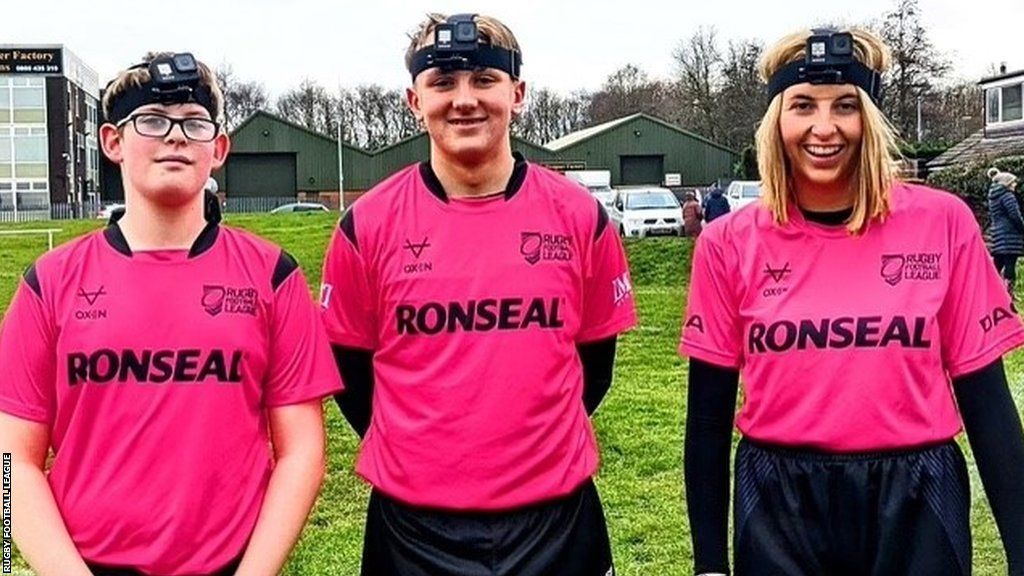Challenge Cup: Head-cams in focus as Edinburgh Eagles v Saddleworth Rangers starts BBC coverage
- Published

Referees will be wearing head-cams in all of this weekend's 18 Challenge Cup first-round ties
Challenge Cup first round - Edinburgh Eagles v Saddleworth Rangers |
|---|
Date: Saturday, 11 February Kick-off: 13:15 GMT Coverage: Live on BBC iPlayer, BBC Sport website and app |
Edinburgh Eagles are hoping to put Scottish rugby league into sharp focus when they face Saddleworth Rangers in Saturday's televised Challenge Cup tie.
And it's not just rugby league fans that will be tuning in to watch a potential upset. Officials from sporting bodies around the UK will be taking an interest.
The first-round match - pitting Scotland's strongest team against one of the English game's most traditional community clubs - has been chosen to be screened on the BBC iPlayer and streamed on the BBC Sport website and app.
The Eagles are quietly confident that they can create a bit of history after coming close to upsetting National Conference Premier Division side York Acorn at the same stage of last year's competition.
But it is the addition of an extra camera at the game that is also causing a stir.
Referee Stuart Fraser will be wearing a head-cam as part of the Rugby Football League's crackdown on disciplinary issues. And referees at all the other 17 cup ties this weekend will also be wearing the same technology.
In all, 200 cameras will be worn by match officials in community games this season, starting this weekend, in a bid to battle anti-social behaviour both on and off the field.
"We had insight that, within the community game, abuse of matchday officials, particularly younger officials, was a problem," said Super League referee Liam Moore.
"The problem was pretty horrific on some weekends, so we knew some action had to be taken."
Last year six head cameras were bought and tested out at a number of National Conference League matches. The experiment was so successful, funding has been found to buy another 200 cameras so that referees up and down the UK can use them.
"The feedback we got from referees and players and coaches was just the fact that the referee had a camera on was acting as a deterrent for player behaviour.
"We had a massive improvement in discipline in the NCL last year," added Moore, who is also recruitment and development manager at the RFL.
"They see the head-cam and they moderate their behaviour."
And he believes that the new technology will help keep more referees in the game as bad behaviour and abuse is stamped out.
"These are high quality cameras and they pick everything up, including the sound. So everything that is said is recorded as well," said Moore.
"The biggest barrier we found in retaining referees is they get up on a Sunday morning to go and referee a game and they listen to dog's abuse from the touchline, or a player or a coach, and it puts them off forever.
"We need to provide the right environment for referees, especially the young ones. Some of these are 13 or 14-year-olds, who've never had to deal with conflict management before.
"It's something we're really proud of because rugby league is a pioneer. We've been talking to the Football Association, and other governing bodies, about how effective it's been and the processes we've been through.
"Obviously the FA have a grassroots issue for officiating as well. So they're looking at what we're doing, to do something similar in football.
"It's a sporting problem, not simply a rugby league issue. It's a society problem. If this helps it's got be welcomed."